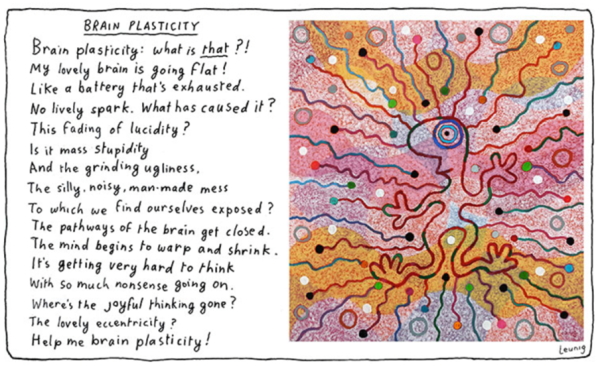If we practice anxiety, we get better at it!
10 May 2024

There has been great excitement in recent years about the brain's ability to transform itself through activity - that is through how we use our minds and bodies. It makes sense! Whatever we practice, the brain responds by laying down new connections to facilitate that experience more easily next time – whether it be meditation, cooking or learning the guitar.
If we practice anxiety, it is no surprise that we get better at that. And if we practice pausing, reflecting calming down, listening to our emotions as signals, speaking our truth with kindness - we get better at that!
And there is no use chastising ourselves by how our minds are right now. There are many good reasons for that. But what if we could make a choice to actively help our brain, body and therefore our minds to make skilful connections for next week, next month, next year. By all appearances, our world is only going to get more stressful not less. How we meet those moments will matter.
Come along and join our evidence based-MSBR course and see what it can offer.
Some of the science….
Mindfulness training can be helpful to train our minds (and therefore brains) in a useful direction:
- In 2015 a team of scientists from University of British Columbia and the Chemnitz University of Technology pooled data from more than 20 brain mapping studies which showed that after 8 weeks of daily practice mindfulness practitioners have increased neuronal activity in the anterior cingulate cortex and have an increased capacity to resist distractions, inhibit impulsivity, and make correct answers more than non-meditators. They also learn better from past experience to support optimal decision making and can regulate their emotions better. (1)
- Brain mapping studies showed that 8 weeks of daily mindfulness practice increases grey matter concentration in brain areas involved in learning and memory processes, emotion regulation, self-referential processing, and perspective taking. (2)
- One group of US researchers looked at how mindfulness had helped with anxiety and depression management across various types of people: from those suffering with cancer, to those with social anxiety disorders and eating issues. They examined 39 scientific studies, totalling 1,140 participants and discovered that the anxiety and depression-reducing benefits from mindfulness might be enjoyed across such a wide range of conditions because when you learn mindfulness, you learn how to work with difficulties and stress in general. (3,4)
